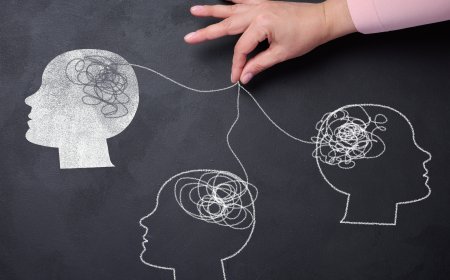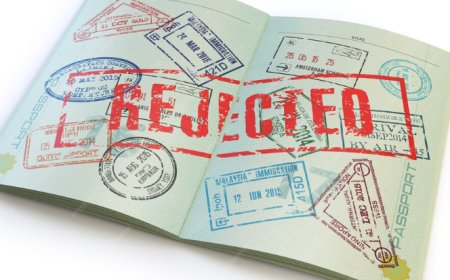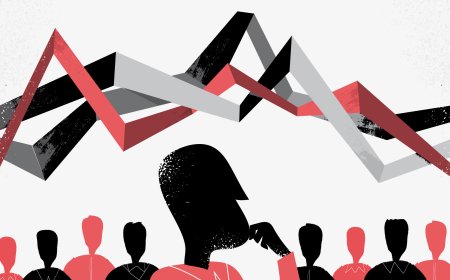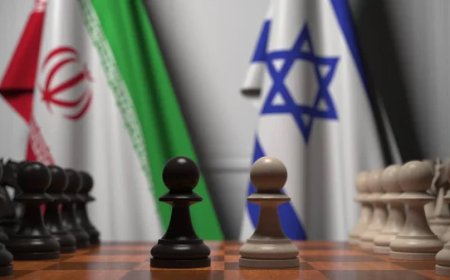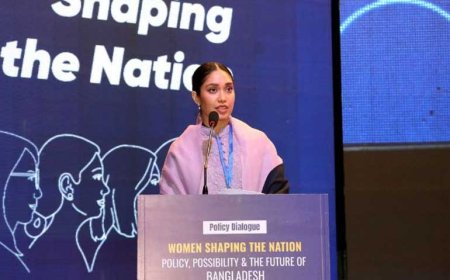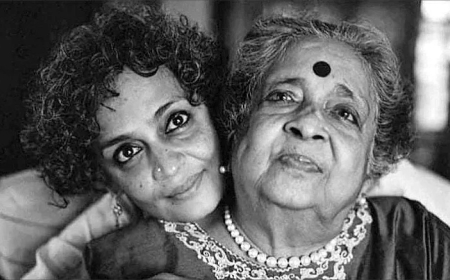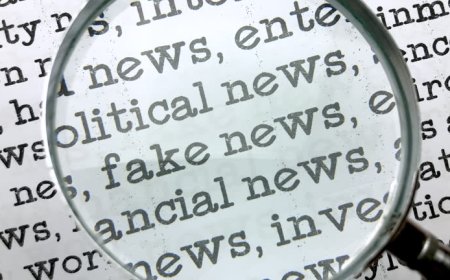Why Politicians Keep Lying
The question is not whether politicians will lie. They will. The question is whether and why we, the people, will continue to believe them.
In the murky corridors of global politics, where ambition often walks hand in hand with deception, lying has become more than just a political strategy -- it has been institutionalised as a tool of governance.
From populist leaders in fragile democracies to iron-fisted rulers in authoritarian states, truth has quietly been placed on the altar of political expediency, sacrificed in the name of control, legacy, or even survival. In the process, what was once deemed the “mother of all sins” has been repackaged into the father of political success.
Many cynically observe that political propaganda is poetry, while governance itself is prose -- an ugly, unimaginative struggle to maintain public perception, manage crises, and deflect blame. That contrast, between idealistic campaign promises and the bleak reality of rule, is where the lie is born and raised. And it is here, in this toxic nursery of manipulation, that the so-called “Big Lie Theory” thrives.
The term became popular after the Second World War, but its moral roots are far older. As Aristotle suggested, politics often enables the poor to become rich, sometimes through dishonest or illegal means, and they then weaponize the very institutions of democracy to preserve that wealth.
Plato warned against sophistry. Machiavelli, perhaps more bluntly, endorsed the occasional use of deception by rulers in The Prince. But what separates our age from theirs is the scale, speed, and shamelessness with which lies are manufactured and disseminated.
A lie today is not just a whispered rumour in a smoky room. It is a tweet. It is a viral video. It is a state-sponsored press release. It is a prime-time monologue delivered with polished certainty. And more than ever, it is a survival tactic in the Darwinian game of politics in fragile states where truth is a luxury, not a necessity.
This has become dangerously evident in many developing countries, where political power is often concentrated in the hands of a singular figure or dynasty. These individuals, elevated to near-divine status by their parties and sycophants, command not only governmental machinery but also the narrative.
Their speeches are treated as gospel, their failures either unacknowledged or reinterpreted as triumphs. Their images dominate posters, textbooks, billboards, and the public imagination. When they falter, it isn’t an error -- it is a conspiracy. When they mislead, it isn’t a lie -- it is a strategic silence. And when they rewrite history, it is simply seen as “correcting the record.”
To protect this carefully constructed image, lies become not only permissible, but necessary. When their projects fail, it is the fault of saboteurs or invisible hands. When their reforms yield no results, it is because the people lack discipline. When their corruption is exposed, it is labelled foreign propaganda. And when citizens raise their voices, they are conveniently branded as traitors or enemies of progress. The lie thus becomes a wall, shielding the leader not just from public scrutiny, but from accountability.
And yet, perhaps the most tragic aspect of this phenomenon is not the lie itself, but the willingness of the public to accept it. In many third-world societies, battered by instability, poverty, and a historical deficit of leadership, the populace often becomes conditioned to seek strength over truth. They become numb to deceit, accepting falsehoods as inevitabilities, even necessities.
As Denis Diderot once wrote: “We swallow false praise with a gullet, but we drink the bitter truth slowly.” The human tendency to cling to comforting illusions is nowhere more obvious than in the political theatre of developing nations.
This public complicity is cultivated and curated. State-controlled media often becomes an amplifier of half-truths and illusions. Education systems are manipulated to rewrite history. Dissent is criminalised or caricatured. Whistleblowers are made to disappear -- figuratively or literally. Elections become rituals of validation rather than mechanisms of accountability. And in this closed loop of propaganda, even intelligent citizens begin to question the truth, or worse, abandon the pursuit altogether.
The movie Primary Colors, starring John Travolta, captures this descent into political deception through the story of a fictionalised Bill Clinton. In the film, a tragic incident is covered up with a lie, not because the protagonist is evil, but because he believes that the lie is necessary to do good later. This utilitarian defence of lying -- “the ends justify the means” -- is a seductive doctrine. But it is also the beginning of moral rot.
That rot spreads quickly. Lies, once deployed, rarely remain isolated. They demand reinforcements. One lie leads to another. Then another. Until eventually, the entire edifice of governance is built on a foundation of fiction. Economic statistics are inflated. Crime rates are downplayed. Corruption scandals are buried. And soon, not even the liar knows what is real and what isn’t. It becomes a haze of self-deception.
This phenomenon is not without consequence. While the politician or party may reap temporary rewards -- public support, electoral victory, or international funding—the long-term damage to the nation is immense. Lies erode trust, the essential currency of any functional democracy. They weaken institutions, distort development goals, and destroy credibility on the world stage. Investors hesitate, allies withdraw, and ordinary citizens suffer.
The case of many South Asian, African, and Latin American states comes to mind. Promises of utopia made by charismatic leaders have often led to dystopia -- unemployment, inflation, repression. The myth of anti-corruption campaigns becomes a screen behind which bigger crimes are committed. The rhetoric of national revival hides the reality of authoritarianism. And yet the same leaders win again and again, sometimes in questionable elections, sometimes through brute force, and sometimes with the willing applause of a misled public.
One may argue, of course, that lying is not unique to developing countries. Western democracies have seen their share of deceit -- from the Nixon tapes to the Iraq War intelligence, from election misinformation to data manipulation.
But what distinguishes the developing world is the lack of institutional resilience. In mature democracies, lies are often exposed by a free press, independent judiciary, or strong civil society. In weaker states, these institutions are either captured, compromised, or crippled. The lie, once spoken, lives longer, deeper, louder.
The philosopher Harry Frankfurt once wrote a short but seminal work titled On Bullshit, in which he argued that the most dangerous kind of deception isn’t the outright lie, but the blurring of lines between truth and falsehood. A society that can no longer tell the difference becomes ungovernable in any meaningful sense. And this is the real danger -- that the people, once proud inheritors of democratic ideals, become disillusioned, disengaged, and ultimately, defeated.
What, then, is the alternative? Must we resign ourselves to the inevitability of political deceit?
Not necessarily. History offers both warnings and hope. Lies may win elections, but they do not build nations. Accountability may be delayed, but it is rarely denied forever. When truth is suppressed too long, it erupts -- in protests, in revolutions, in regime changes. The Arab Spring was sparked by decades of official denial and deception. The fall of dictatorial regimes in South America and Eastern Europe came when the weight of lies collapsed the scaffolding of fear.
The responsibility, therefore, lies not just with the liars, but with the lied-to. Citizens must relearn the value of scepticism. Journalists must find courage. Academics must speak truth to power. And opposition leaders must resist the temptation to lie in return. A culture of honesty, however imperfect, must be nurtured, or else the cycle continues.
In the end, lying may help a politician gain power or stay in power, but it cannot generate peace, progress, or posterity. No nation has ever been built on a bed of falsehoods. And while political lying may be as old as politics itself, truth -- though slower, rougher, and more painful -- remains the only path to lasting leadership.
The question is not whether politicians will lie. They will. The question is whether we, the people, will continue to believe them.
H. M. Nazmul Alam is an Academic, Journalist, and Political Analyst based in Dhaka. He can be reached at [email protected].
What's Your Reaction?









